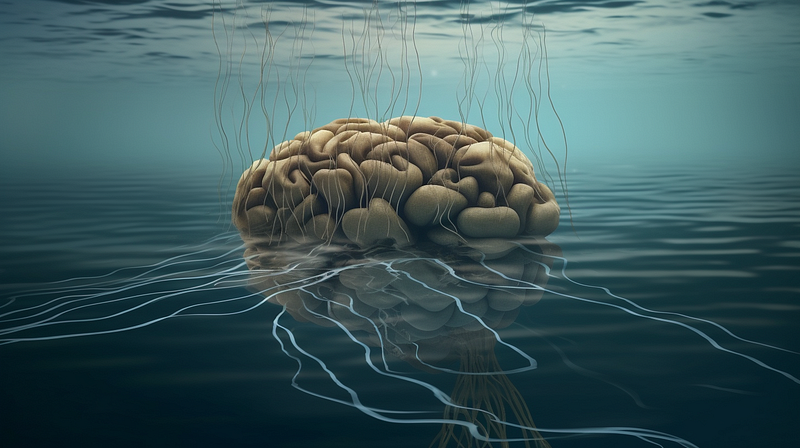The Interconnected Mind: How Individualism Impacts Well-Being
Written on
Chapter 1: The Essence of Connection
In the words of John Donne, "No man is an island, entire of itself; every man is a piece of the continent, a part of the main." This sentiment applies to the mind as well: "No brain exists in isolation; every individual is part of a larger network, a connected whole." Our cognitive and emotional frameworks extend far beyond our individual selves. We often think and feel in relation to others, and when those relationships are severed, the pain can be profoundly physical. The notion of self-help becomes futile when we realize that we are not merely isolated beings, but rather interconnected illusions sustained across various levels of existence.
While contemporary neuroscience and technology often frame our understanding of the mind, ancient wisdom still holds relevance. For instance, in Sri Lanka, a traditional form of mental health intervention involves communal "demon" dances, which highlight the importance of community in healing. Similarly, a historical account of the Maya culture illustrates this interconnectedness: “Instead of viewing illness as a purely physical issue, the shaman addresses it within the context of familial and social dynamics. Healing is not just about the individual but involves mending emotional, social, and communal bonds.” (A Forest Of Kings, Schele and Friedel)
This reflection brings to mind Heather B. Armstrong, known as Dooce, one of the first bloggers I followed. Her poignant book, The Valedictorian Of Being Dead, recounts her experience with therapy where she was sedated using propofol, hoping to reset her mind. She involved her family in this process, highlighting the interconnectedness of their experiences.
“Dr. Tadler prepared to administer the propofol,” her mother recalled. “Do you remember that moment?”
Strangely, I had forgotten, although I usually remember such details. What lingered in my mind was the image of her sister, September, who watched in silent concern as Dooce slipped away.
“She remained silent throughout the entire time you were out,” her mother recounted, revealing the deep emotional weight of the situation.
The power of community and shared experience is evident. During the treatment, the emotional responses of her family underlined the sacredness of the moment.
“What you’re experiencing is profoundly sacred,” her mother remarked, capturing the essence of their shared vulnerability and connection.
As I reflect on Dooce's legacy, I think of her family and the many lives she touched online. The impact of loss resonates deeply with me, reminding me of the interconnectedness expressed by Donne: “any man’s death diminishes me.” In her narrative, Dooce's journey is not just about her struggles but also about her relationships, revealing that life’s meaning is derived from our connections. We are not solitary islands; we are part of a vast, interconnected web.
Section 1.1: The Limits of Modern Medicine
In this context, medicine often clashes with philosophical boundaries. The most consistent finding in psychological research is the placebo effect, underscoring the fact that isolating individuals for treatment can lead to detrimental consequences.

Modern society has detached itself from community and spirituality, relying heavily on studies to understand human behavior. This isolation breeds unhappiness, often surpassing the negative impacts of smoking or excessive drinking. Interestingly, laboratory studies on rats indicate that when these animals are given social connections, they choose not to self-medicate with drugs. Their self-destructive behaviors emerge only when they are isolated from their social structures.
Dooce’s therapy, which involved a cocktail of drugs including propofol and fentanyl, mirrors the self-medication many undertake outside the confines of medical supervision. The opioid crisis, characterized by widespread misuse of substances like heroin and fentanyl, highlights the dire consequences of societal isolation.
Weezer - Island In The Sun (Official Music Video): This video encapsulates the joy of connection and community, contrasting with the isolation described.
Section 1.2: The Philosophy of Healing
As modern science seeks to isolate variables for clarity, the foundational principle of human connection is often overlooked. The enlightenment era favored individualism, but such a view has led to a disconnection from deeper wisdom and community bonds. The separation of knowledge from spirituality has resulted in a profound feeling of loss and pain.
I do not criticize Dooce's medical team; they provided her with significant relief and quality of life. Yet, it raises the question of how we arrived at such a stark reality. Can we escape the flawed emphasis on individualism inherent in psychology, or have we forsaken vital wisdom along the way?
In her book, Dooce’s doctor suggested that her recovery could be attributed to various factors, including the natural course of her illness and the placebo effect, as well as the support she received from her family and medical team.
Zombie Brigade: No Brain No Pain [Wii U]: This video illustrates the consequences of disconnection and the importance of community in overcoming challenges.
Modern psychological studies often focus on isolating individuals, neglecting the broader context of human experience. This isolation can manifest in detrimental ways, as we witness the pain inflicted by loneliness and disconnection. The essence of our existence extends beyond mere biological functions; our ability to empathize and feel for others signifies a profound interconnectedness.
I feel Dooce’s anguish from afar, similar to how we mourn in our family. We gather annually to honor the memory of our loved ones through rituals that symbolize our connections. Whether deemed "real" or "superstitious," these practices embody the wisdom of our interconnected existence.
Ultimately, we must recognize that no brain exists in isolation. Our shared experiences, bonds, and connections are crucial to our well-being. Perhaps our modern disconnection is the root of our collective sorrow.